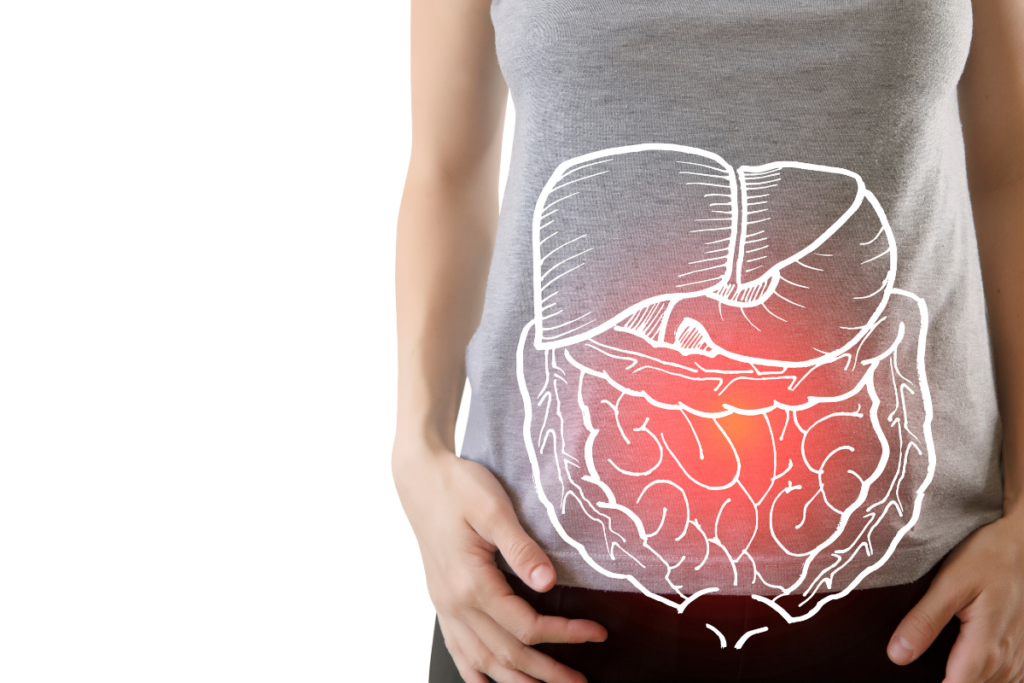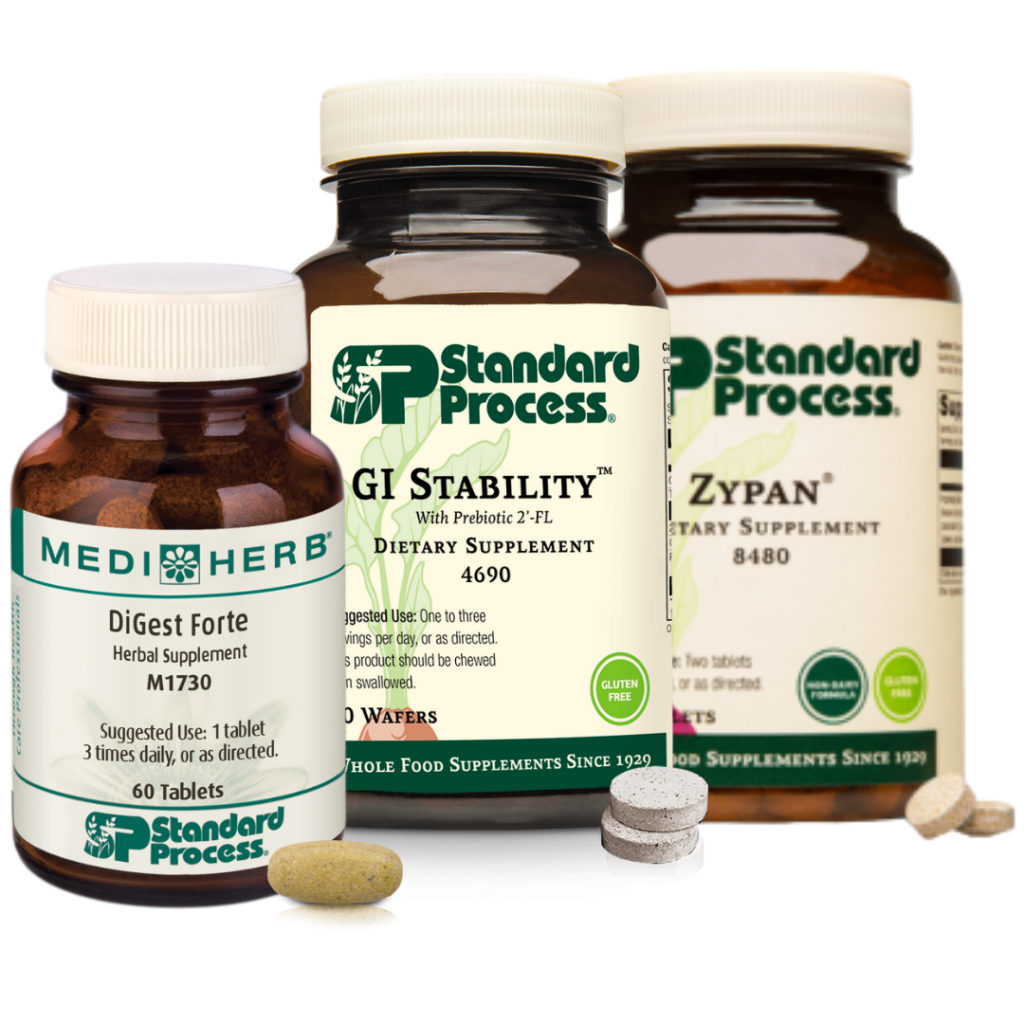By Claire Bacon, ACN, CNC
Ahh, stress! Who hasn’t felt how stress can tear you up, from the inside out? You are probably familiar with the expression, “having butterflies in my stomach.” This feeling is your body saying you’re under stress, causing small spasms in the stomach. Sometimes, the feeling can get so severe, people can feel nausea or even vomit. However, we can all feel the effects of stress differently. We can summarize how stress affects digestion in two important ways:
First, stress can affect appetite by triggering the brain’s glutamate receptors in the hypothalamus. Glutamate stimulates appetite so efficiently that it is used in commercial fabrication of food, despite its “excitotoxicity.” Increasing glutamate in the body causes us to “stress eat.” This serves to satisfy our emotional needs, as opposed to eating to satisfy hunger. On the opposite hand, some people lose their appetite when they stress themselves too much. Research shows that about 40% of people eat more and 40% eat less when stressed, while roughly 20% don’t change their food intake at all.
Second, stress adversely affects the function of the gastro-intestinal (GI) tract. Studies show that stress affects the absorption process, intestinal permeability, mucus and stomach acid secretion, and GI inflammation. Stress also increases the inflammatory response to certain foods. Unfortunately, this ultimately results in GI diseases such as colitis, irritable bowel syndrome, or mast cell activation. When mucosal mast cells activate, this can alter the permeability of the gut lining (hello leaky gut). Stress can also delay stomach emptying (making food just “sit there”) and accelerates colonic motility (having loose or watery stools).

Physiology
When we begin experiencing stress, multiple reactions start to occur in the body. The hypothalamus in the brain releases corticotropin-releasing hormone (CRH). At the same time, the pituitary releases adrenocorticotropic hormone (ACTH) into circulation. ACTH binds to receptors in the adrenal glands. This binding activity of ACTH is what triggers the release of the well-known stress hormone cortisol.
With a situation of long-term stress, the continued release of cortisol (and other glucocorticoid hormones) is why we feel the urge to overeat. With the stress hormones circulating, they control our appetite-regulating hormones, such as leptin, ghrelin and neuropeptide Y.
- Leptin is the ‘satiety hormone’ as its role is to inhibit hunger and regulate energy balance.
- Ghrelin is the ‘hunger hormone,’ as it stimulates appetite to increase food intake.
- Neuropeptide Y is also an appetite stimulant, which increases the motivation to eat and delay the feelings of satiety.

Keeping Your Digestion Working Under Stress
The easiest remedy for stress-related digestive issues is to use the right supplementation. For this, you may need some assistance. There are a million different options to bring about healing and proper function:
- Hydrochloric acid (for trouble with proteins)
- Enzymes to help break down plant foods
- Probiotics and beneficial yeast to bring new life to the digestive system
- Anti-microbial herbs to kill off unwanted microbes
- Soothing herbs, chlorophyll and/or clay to calm down an irritated gut lining
- Digestive bitters to stimulate gastric juices. (Our favorites: Digest Forte, Urban Moonshine, or the Atlanta-produced 1821 brand).
Other strategies for stress management include eliminating the sources of chronic stress:
- You can turn off the TV and go get your things done!
- Remove social media apps from your phone
- Turn your focus to your family, your passions and hobbies, or your pets – all the things that bring you joy!
The social support you gain from a real-life person right in front of you is priceless – so play a game of cards, discuss your hopes and dreams, or work on a project together. Make a real connection. These are the things that really matter!
Favorite Digestive Supplements When Under Stress:

- Digest Forte is a blend of bitter herbs, which stimulates your own digestive acids from the salivary glands, stomach, pancreas, intestines, and liver. A complete blend for digestive support!
- GI Stability combines prebiotic fiber, probiotic bacteria, beets and okra to improve the microbial life in your gut. These chewable wafers taste earthy at first, but get better as your palate changes with the additional nutrients.
- Zypan is probably our best bang-for-your-buck supplement. It has hydrochloric acid and enzymes, to help break down your proteins. If you love hamburgers and steak, but they sit too heavy on your belly, try a few Zypan to help the digestive process move along. Contraindicated for anyone with a stomach ulcer.
- Bonus: If stress while traveling makes you constipated, you’ve got to have some A-F Betafood on hand. A-F Betafood is made of beets with some vitamin A and essential fatty acids mixed in. It’s the perfect food to keep your liver and gallbladder working well!
We hope this information gives you some new strategies! With new ways to control stress, you can keep your digestion working at all times!



